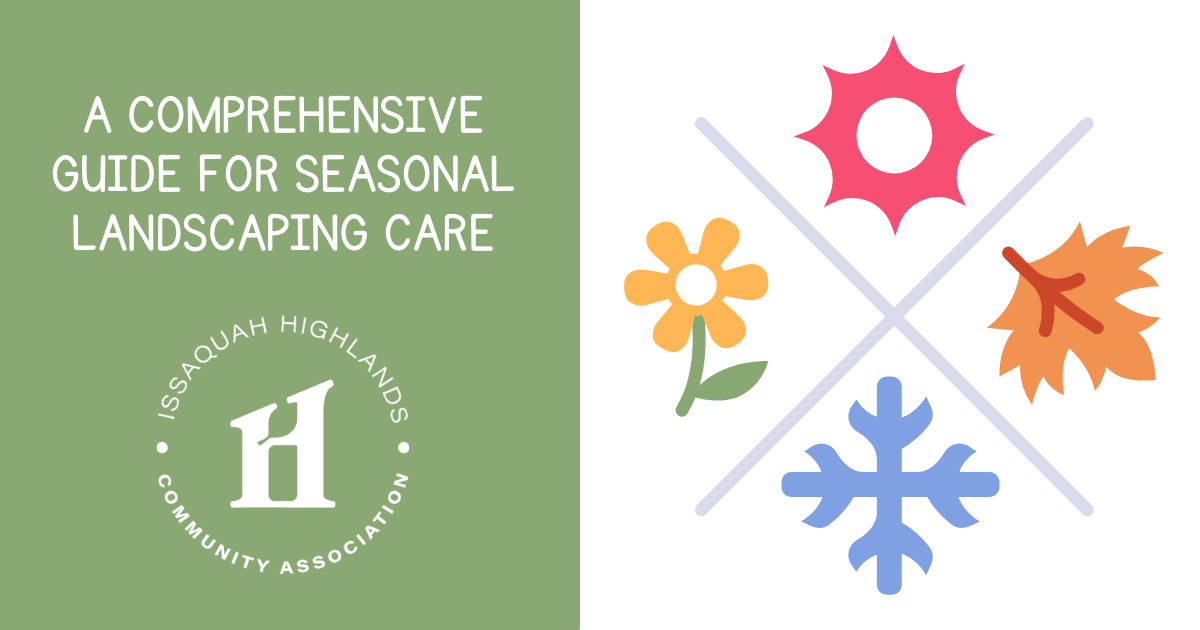
Maintaining a vibrant and healthy landscape requires a tailored approach for each season. Whether it’s spring, summer, fall or winter, strategic care ensures your outdoor space thrives throughout the year.
In this comprehensive guide, we’ll explore key tips for seasonal landscaping care to keep your garden, lawn and plants in optimal condition.
WINTER
1. Protecting Plants: Shield sensitive plants from frost by covering them with burlap or other protective materials.
2. Tool Maintenance: Clean and store gardening tools properly to prevent rust and extend their lifespan.
3. Planning for Spring: Use the winter months to plan next year’s landscaping projects, considering any adjustments based on the past season’s experiences.
SPRING
1. Pruning and Cleanup: Start spring by removing debris and dead plants. Prune shrubs and trees to encourage healthy growth.
2. Soil Preparation: Test and amend your soil for optimal nutrient levels. Spring is an excellent time for adding compost to enhance fertility.
3. Planting: Introduce new plants and flowers, taking advantage of the moderate temperatures. Consider drought-resistant varieties.
SUMMER
1. Watering: With the rising temperatures, adjust your watering schedule. Water deeply and in the early morning or late evening to minimize evaporation.
2. Mulching: Apply a layer of mulch to conserve moisture, suppress weeds and regulate soil temperature.
3. Pest Control: Regularly inspect plants for pests. Use natural or chemical control methods as needed, ensuring a healthy ecosystem.
FALL
1. Leaf Management: As leaves begin to fall, clear them from lawns and pathways. Compost the leaves or use them as mulch.
2. Fertilization: Apply a balanced fertilizer to prepare plants for the dormant winter months. This promotes root development and nutrient absorption.
3. Planting Bulbs: Take advantage of fall to plant spring-blooming bulbs like tulips or daffodils.
GENERAL TIPS
1. Regular Maintenance: Throughout the year, perform routine maintenance tasks such as weeding, edging and checking irrigation systems.
2. Observation: Keep a watchful eye on your landscape. Early detection of issues allows for prompt intervention.
3. Sustainable Practices: Embrace eco-friendly practices, such as using organic fertilizers and minimizing chemical usage.
By adapting your landscaping care to each season, you’ll create a resilient and visually appealing outdoor space. These tips provide a foundation for year-round success, ensuring your garden remains a flourishing testament to the changing beauty of nature.
Susan Carlson is the IHCA Community Manager & Compliance Coordinator.





